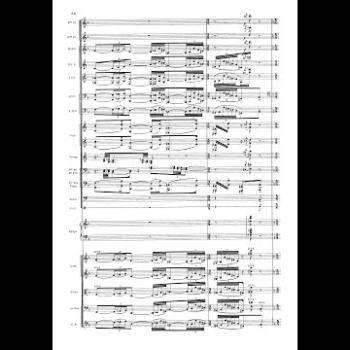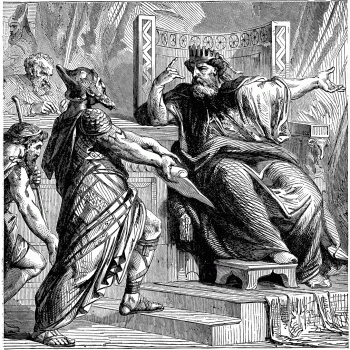First, in case you missed it, take a look at the wonderful Twitter thread by Carmen Joy Imes on the story of Bathsheba in the Bible and why it is not only appropriate but important to treat what David did as rape rather than adultery:
I thought it was just my incredibly niche timeline of Southern Baptists thrown together with Anglicans … but apparently not. David and Bathsheba are trending. A few points that I’m not hearing clearly enough: a �1/ pic.twitter.com/Mkj7lE0TX0
— Carmen Joy Imes (@carmenjoyimes) July 13, 2022
Since then Andrew Perriman has chimed in. You can read his post before reading on or you can carry on here first and then go see whether my impression of what he wrote matches your own.
I think Perriman fails to do justice to a number of important considerations including the power dynamics when a king sends for someone. Nathan does not tell a parable that blames the poor man’s lamb for looking particularly delicious to the rich man who stole it. Perriman’s inclination to find reasons to blame Bathsheba when there are none in the text illustrates precisely why this issue is so important, as that inclination of men to blame women has not gone away. The fact that if you look for online mentions of discussion and controversy about this on Twitter you’ll find old articles and blog post as well as more recent ones also says something. It keeps coming up. It is reassuring that even the conservative Evangelical Gospel coalition agrees that the story of Bathsheba is about David as rapist and not about adultery which implies consent by both parties.
I’ll take the opportunity to express appreciation for Jesus’ teaching that tells men to pluck out eyes and cut off organs if they are sure they cannot keep from sinning. He doesn’t say to remove someone or something else because it is not the thing that is found tempting that is to blame. I wonder whether Jesus’ hyperbole was intended to make the point that those who claim they cannot help themselves actually have more self-control than they claim. If the only way to save your life is to lose an eye or a limb, we’d all accept the price is worth it. Yet people sacrifice their morals and, for those who think in those terms, their eternal souls in the pursuit of what they desire. Given the choice between losing an organ and learning better self-control, likewise most of us will consider the latter preferable. James 1:13-15 approaches the matter in much the same way, presumably reflecting the influence of Jesus’ teaching at this point.
Lest anyone be tempted to pit Jesus’ teaching against that of the Jewish scriptures, Imes notes in the aforementioned Twitter thread that “the Bible thinks of the responsibility of male heads of household to keep their hands off their neighbor’s wife. See Exodus 20:14. The Ten Commandments are addressed to men by default. They were to restrain their strength for the sake of community. Regardless of a woman’s desirability, a man was charged to protect his neighbor’s marriage.” That a king was felt to be accountable to a higher authority in ancient Israel makes that society stand out. Imes writes, “The narrator is unequivocal in blaming David (2 Sam 11:27). The prophet is unequivocal in blaming David (2 Sam 12:1-12). Bathsheba is never chastised…To pin the blame equally on Bathsheba is to ignore how God assesses the story through Nathan, the prophet. It’s to ignore the clear exegetical signals throughout the chapter. It’s to be unaware of the architecture and culture of the city of David. David acts cooly, as though he has every right to do what he does. If he were king of any other ANE kingdom, there would be nothing remarkable about his behavior. Kings can do whatever they please. But we’re not in any other kingdom, we’re in Israel. That means that David’s power is not absolute. He doesn’t make the rules. Yahweh does.”
The thread also contains countless other gems, such as that Uriah “shows more restraint when drunk than David does when sober.” Seriously, go read it if you haven’t done so already, and express your appreciation for the fat that Imes shares her scholarly insights with the public in this way.
For those interested in reading more about this, Diana and David Garland have a chapter on the subject that is shared freely on the Baylor University website. It is from the book Flawed Families of the Bible. Richard M. Davidson also has an article online addressing the topic from within the Adventist tradition. Hilary Lipka contributed an article to Bible Odyssey.
Imes’ Twitter thread is condensed from a longer sermon on this topic which you can listen to here:













